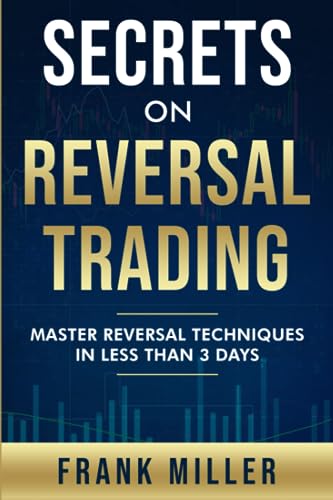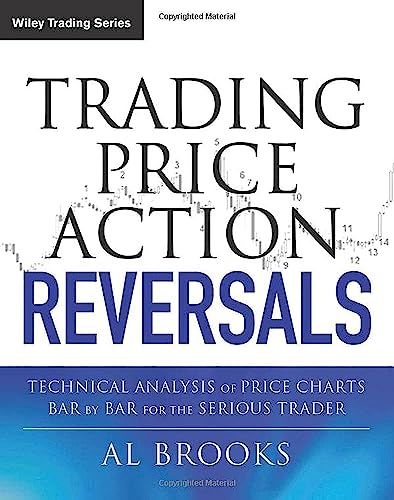- Miller, Frank (Author)
- English (Publication Language)
- 92 Pages - 11/01/2020 (Publication Date) - Independently published (Publisher)
Introduction
Reversal Trading: Unleash Profit Potential Now!
Reversal trading is a powerful strategy that can help traders capitalize on market reversals and unlock significant profit potential. In this article, we will explore the concept of reversal trading and provide valuable insights on how to implement it effectively.
Understanding Reversal Trading
Reversal trading is based on the principle that markets tend to reverse their direction after a significant move. It involves identifying key reversal patterns or signals that indicate a potential change in market sentiment. By recognizing these patterns early on, traders can position themselves to take advantage of the upcoming price reversal.
The Importance of Timing
Timing is crucial in reversal trading. Traders need to be able to identify when a trend is losing momentum and a potential reversal is imminent. This requires a keen eye for technical analysis and the ability to interpret price action accurately. By mastering the art of timing, traders can enter trades at optimal points and maximize their profit potential.
Key Reversal Patterns
There are several key reversal patterns that traders commonly use in reversal trading. These patterns include:
1. Head and Shoulders: This pattern consists of a peak (the head) with two lower peaks on either side (the shoulders). It indicates a potential trend reversal from bullish to bearish.
2. Double Top/Bottom: This pattern occurs when the price reaches a high (double top) or a low (double bottom) twice before reversing. It signals a potential reversal in the opposite direction.
3. Engulfing Pattern: This pattern involves one candlestick completely engulfing the previous candlestick. It suggests a potential reversal in the direction of the engulfing candle.
4. Hammer/Shooting Star: These candlestick patterns have long lower shadows and small bodies. A hammer indicates a potential bullish reversal, while a shooting star suggests a potential bearish reversal.
Implementing Reversal Trading Strategies
To effectively implement reversal trading strategies, traders should consider the following:
1. Confirming indicators: Use additional technical indicators, such as moving averages or oscillators, to confirm the potential reversal signals.
2. Risk management: Set appropriate stop-loss levels to limit potential losses in case the reversal fails to materialize.
3. Patience and discipline: Wait for confirmation before entering a trade and stick to your trading plan.
4. Practice and backtesting: Test your strategies on historical data to gain confidence and refine your approach.
Conclusion
Reversal trading can be a profitable strategy for traders who can accurately identify potential market reversals. By understanding key reversal patterns, mastering timing, and implementing effective strategies, traders can unleash the profit potential of reversal trading. Remember to always practice proper risk management and stay disciplined in your approach. Start exploring reversal trading today and take your trading to new heights!
- Miller, Frank (Author)
- English (Publication Language)
- 92 Pages - 11/01/2020 (Publication Date) - Independently published (Publisher)
- Hardcover Book
- Brooks, Al (Author)
- English (Publication Language)
- 576 Pages - 01/24/2012 (Publication Date) - Wiley (Publisher)
- Turner, Robert (Author)
- English (Publication Language)
- 83 Pages - 06/18/2023 (Publication Date) - Independently published (Publisher)
- Teally, Robb (Author)
- English (Publication Language)
- 142 Pages - 08/06/2024 (Publication Date) - Independently published (Publisher)
Last Updated on September 27, 2023 by ingmin




